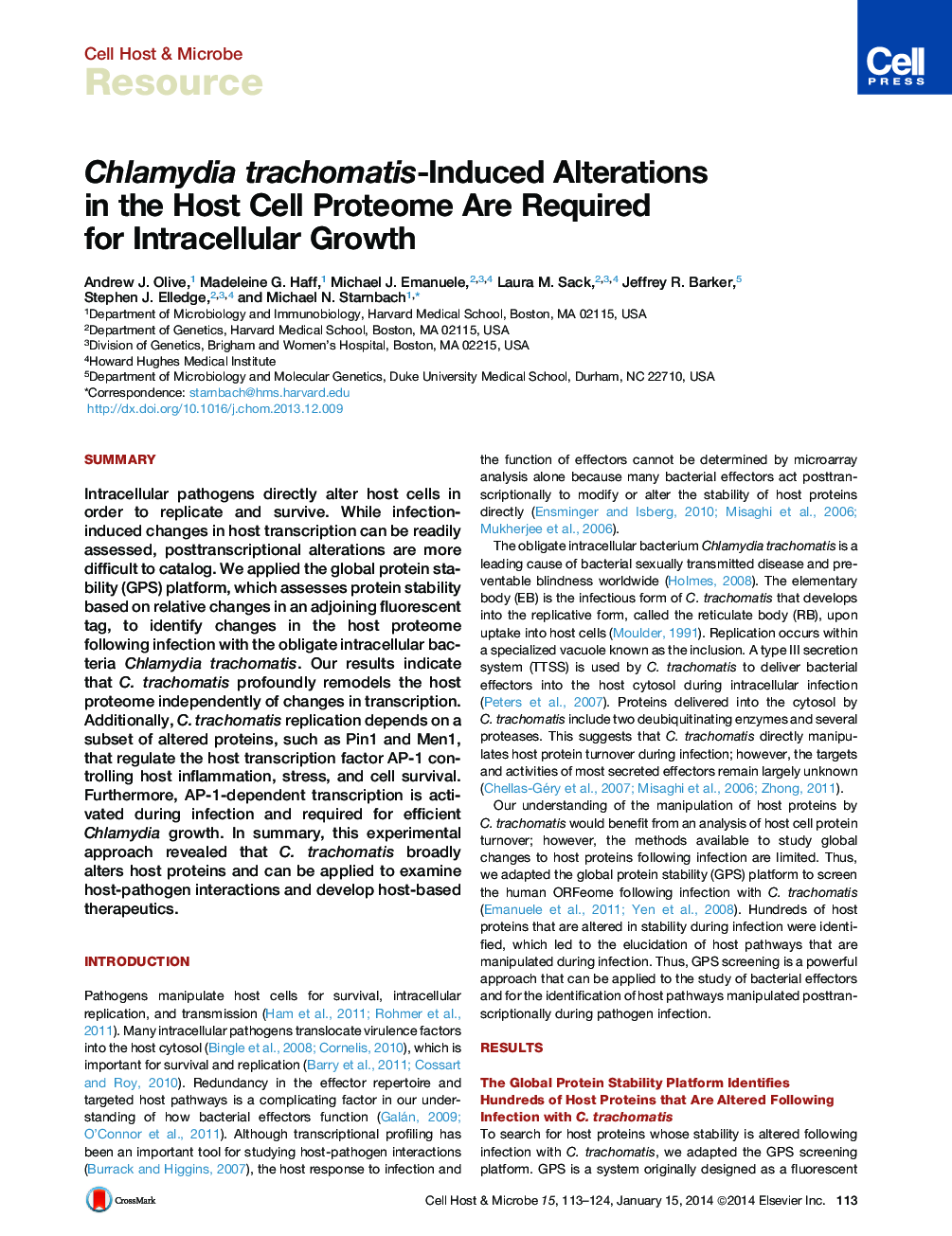| Article ID | Journal | Published Year | Pages | File Type |
|---|---|---|---|---|
| 4361127 | Cell Host & Microbe | 2014 | 12 Pages |
•C. trachomatis broadly alters the host proteome throughout infection•Several altered host proteins are necessary for productive C. trachomatis growth•Activation of the AP-1 transcription complex is required for C. trachomatis growth
SummaryIntracellular pathogens directly alter host cells in order to replicate and survive. While infection-induced changes in host transcription can be readily assessed, posttranscriptional alterations are more difficult to catalog. We applied the global protein stability (GPS) platform, which assesses protein stability based on relative changes in an adjoining fluorescent tag, to identify changes in the host proteome following infection with the obligate intracellular bacteria Chlamydia trachomatis. Our results indicate that C. trachomatis profoundly remodels the host proteome independently of changes in transcription. Additionally, C. trachomatis replication depends on a subset of altered proteins, such as Pin1 and Men1, that regulate the host transcription factor AP-1 controlling host inflammation, stress, and cell survival. Furthermore, AP-1-dependent transcription is activated during infection and required for efficient Chlamydia growth. In summary, this experimental approach revealed that C. trachomatis broadly alters host proteins and can be applied to examine host-pathogen interactions and develop host-based therapeutics.
Graphical AbstractFigure optionsDownload full-size imageDownload high-quality image (159 K)Download as PowerPoint slide
